COVID-19 Gold Coast: How to cope with panic lockdowns
Our response to the COVID-19 outbreak affecting Brisbane and the Gold Coast would be so much better if just one thing changed, writes Keith Woods.
Opinion
Don't miss out on the headlines from Opinion. Followed categories will be added to My News.
THE British had a wonderful wartime phrase that in recent years has become popular again: “Keep calm and carry on.”
It was first used on posters issued by the government in 1939 as war loomed.
The threat to the public from Hitler’s bombers at that time was very real. The sloganeers were not trying to deny it. But they knew that panic and hysteria would do nothing to help.
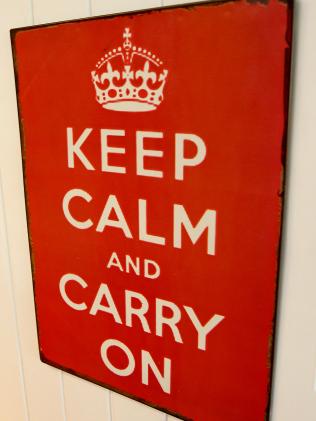
We could do with some of that same stoicism here in Queensland at the moment.
How dispiriting, when word about the Greater Brisbane lockdown broke on Monday, to see panic buyers crowding into supermarkets. As last year’s far lengthier lockdown proved, shops will stay open and food will not run out. It’s not like there’ll be ration books.
The shoppers were carrying on all right, but not in the British sense.
'IT'S GOING CRAZY': RAPID COVID CHANGE LEAVES COAST SCRAMBLING
Also carrying on – and getting a little carried away – have been some state officials, adding to public jitters.
There was a press release claiming one of the Brisbane men infected with COVID had “hosted a gathering of around 25 people” while he awaited his test results. Which was utterly untrue.
There was also the bizarre sequence of messages sent to parents of state schools in the northern Gold Coast, who were asked on Monday evening to keep their children home.
A request that was reversed by lunchtime on Tuesday.
It didn’t help that at least one major school conveyed the information via a letter that, while well over 500 words, still left intelligent people unsure whether they were allowed to send their children to school or not.
Another great British institution – the Campaign for Plain English – should probably have been called in.

Given that we have lived with the COVID-19 pandemic for more than a year, the sense of panic and disarray among both the public and certain arms of state was deeply disappointing.
One would have expected we would have learned to handle ourselves a little better by now.
The COVID-19 outbreak in Brisbane, and the risk of it spreading to the Gold Coast, is serious and concerning. Only fools downplay the potential impact of this disease on our community.
But it’s no reason to lose our heads. As Premier Annastacia Palaszczuk was keen to stress yesterday, the cases of community transmission recorded are linked to known clusters – significant because it greatly enhances the prospect that contact tracing can snuff the danger out.
“We’ve done it before, we’ve got through this together and I’m sure that if everyone does the right thing, we’ll be able to get through it,” Ms Palaszczuk said.
She is right. Our friends in Sydney have been through similar outbreaks before on many occasions too – successfully getting on top of all of them.
They’ve done so with minimal drama. With cool heads, we can do the same.
We just need to follow the health advice, keep calm, and carry on.
FEBRUARY 3: OUR NEW COVID STRATEGY - PANIC EARLY AND OFTEN
THIS column wishes to congratulate the various Premiers, health officers and sundry bureaucrats that have dictated Australia’s response to the COVID-19 pandemic.
After a year of bickering over when to open and close borders, quarantine rules and the definition of “hot spots”, we finally appear to have a unified national strategy.
And it’s a devilishly simple one. Panic. Early and often.
Following Queensland’s lead, as it usually does (they even have a Queensland-educated Premier), Western Australia is in the midst of a five-day lockdown that has closed schools and businesses because of a solitary case.
One case. That’s how low the bar has gone.
It looks a little ridiculous, especially when accompanied by images of people crowding into supermarkets — a sure way to spread a virus if it is already at large.
And it must seem truly bizarre to people hearing the news in the US and Europe, where case numbers in the single digits would spark national jubilation of the kind not seen since the end of the war.


FULL DIGITAL ACCESS: JUST $1 FOR FIRST 28 DAYS
So, like needless state border closures, which WA Premier Mark McGowan is most certainly a fan of, it’s a wild over-reaction?
Perhaps. But he has the public on his side. And more importantly people who, unlike this author, have studied infectious diseases their whole lives.
“The worry is that it (the UK variant of COVID-19) is a more transmissible strain,” Medical Journal of Australia Professor Nick Talley told Ben Fordham on 2GB radio.
“If this takes hold in the community it could be a real disaster.
“I think that’s why there’s been this arguably over-reaction, but I’d say probably reasonable reaction, to this particular situation.”
Other experts are in furious agreement.
WHO adviser and epidemiologist Mary-Louise McLaws told ABC radio Western Australia’s five-day lockdown was “absolutely the right decision from an outbreak management perspective”.
“Putting the state, or the area, under lockdown buys the contact tracers time,” she said.
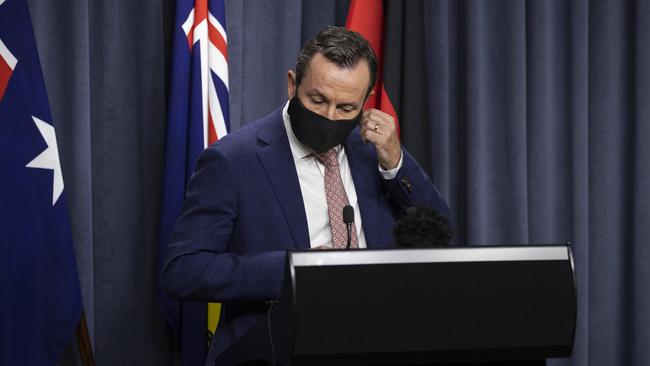
Perth’s lockdown comes less than a month after similar measures in Brisbane. It was Adelaide’s turn in November. Snap lockdowns appear to be the way of the future.
This presents a fresh challenge for the Gold Coast’s tourism industry. The idea that one might be forced to quarantine or get turned back because a lockdown is declared when you’re already on a flight is proving to be a real disincentive to travel.
It’s why celebrations were muted when the Queensland border reopened to Sydney on Monday.
“The big issue we have is that consumers are losing confidence to travel because of uncertainty if the border will be shut,” Bikash Randhawa, chief operating officer of Movie World owner Village Roadshow Theme Parks, told the Bulletin.
“... There needs to be certainty for people to come here and holiday and know they’ll be able to do that without the border being shut.”
Here’s another idea. If lockdowns are inevitable, as it sadly seems, we should be ready for them and have a proactive plan to make the disruption caused to visitors a less painful experience.
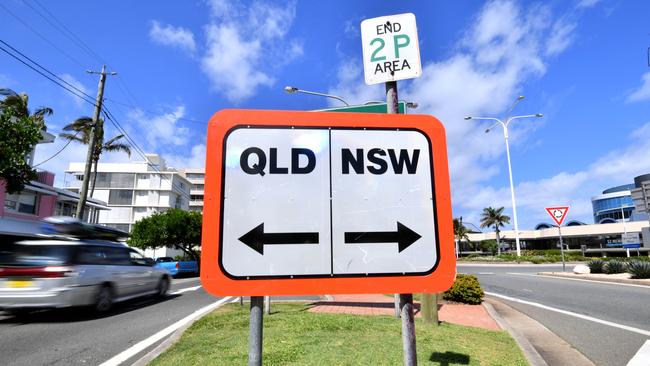
Instead of merely offering stern warnings about fines and a ticket home, how about the state government ensures anyone turned away at the last minute is sent clutching a package of goodies — vouchers for accommodation, meals, theme park entry – all manner of inducements to return another time. And publicise the fact that they’re going to do it.
A form of state-sponsored pandemic travel insurance, if you will, triggered when in transit to Queensland for a holiday booked before the lockdown was declared.
It wouldn’t cost much. Not many would qualify. But it could be good publicity, a way to up-end the idea that through harsh border closures, Queensland has somehow become insular and unwelcoming.
And it would not risk our hard-won COVID-free status. Interesting to note that New Zealand’s pandemic response was ranked no.1 in the world last week. Our Kiwi friends have recorded 2304 cases and 25 deaths from a population of 4.917 million.
Queensland has a slightly larger population — 5.017 million. We’ve recorded 1310 cases and six deaths.
In other words, if Queensland were a nation rather than a state, we’d have knocked New Zealand out of top spot.
We’re also no.1 for tourism and we’d like to stay that way. There will be more lockdowns, more panicking early and often. We should look for ways to mitigate their harmful effects on our tourism industry. We should be prepared.
JANUARY 27: FIVE BIG ISSUES WITH AUSTRALIA DAY
And so we say goodbye to another Australia Day. Glorious sunshine on the Gold Coast. Beer and barbecues. Good times.
A great day, so long as you didn’t turn on the TV or the radio. Because a part of the annual tradition now is the well-worn, dreary debate about the date. For a nation that has so much to be proud of, we sure know how to talk ourselves down, especially on our national day.
How to break the miserable cycle? This column does not have the answer, but offers these thoughts.
1. It’s great to be Australian
Most baffling to this author are the anguished Sydney and Melbourne types who appear ashamed to be Australian. A Guardian column this week opened with the line: “For a long time I have not felt part of Australia, not felt Australian, not wanted to be known as Australian.” You can imagine how the article progressed from there.
It is an especially odd thing to write in 2021, given this nation’s remarkable success in warding off a pandemic that has consumed the rest of the globe. To this columnist at least, Australia has always looked the ideal place to live, to work, to raise a family. But never more so than now.
Not “wanting to be known” as Australian? The thousands who gain citizenship each year would clearly disagree. As would the millions stuck in lockdowns around the globe who would happily trade places with us.
FULL DIGITAL ACCESS: JUST $5 A MONTH FOR THE FIRST THREE MONTHS
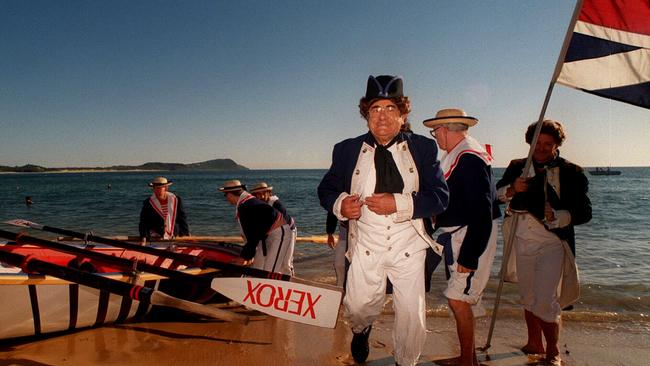
2. Pollies are not helping
Australia Day is meant to be for everybody. But it’s been made to look like a celebration of “White Australia”. Not just by opponents of the celebrations, but by politicians who take their bait.
What was Prime Minister Scott Morrison thinking when he said last week that January 26, 1788, “wasn’t a particularly flash day for the people on those (First Fleet) vessels either.”
The comment came while the PM was responding to news that Cricket Australia had decided to stop using the words “Australia Day” in relation to January 26 events.
How disappointing to see the Prime Minister so easily provoked into stirring the pot.
3. Most people don’t give two hoots about the date
Outside the culture warriors, few really care what date Australia Day is held on. All most reasonable people want is a national day that can be enjoyed without the associated guilt trip.
With 364 other days in the year to choose from, there is no great reason to be attached to January 26. It’s good to know your history and if you do, it’s pretty obvious why this particular date would sit uncomfortably with Australians of indigenous descent.
Many alternative dates have been suggested. Just about every day on the calendar must have been proposed by now. But what the hey, here’s another one to add to the list: August 29. On that day in 1882 Australia won the first Ashes test match, stunning an England crowd into silence at The Oval. Even Cricket Australia might be able to get on board with that one.
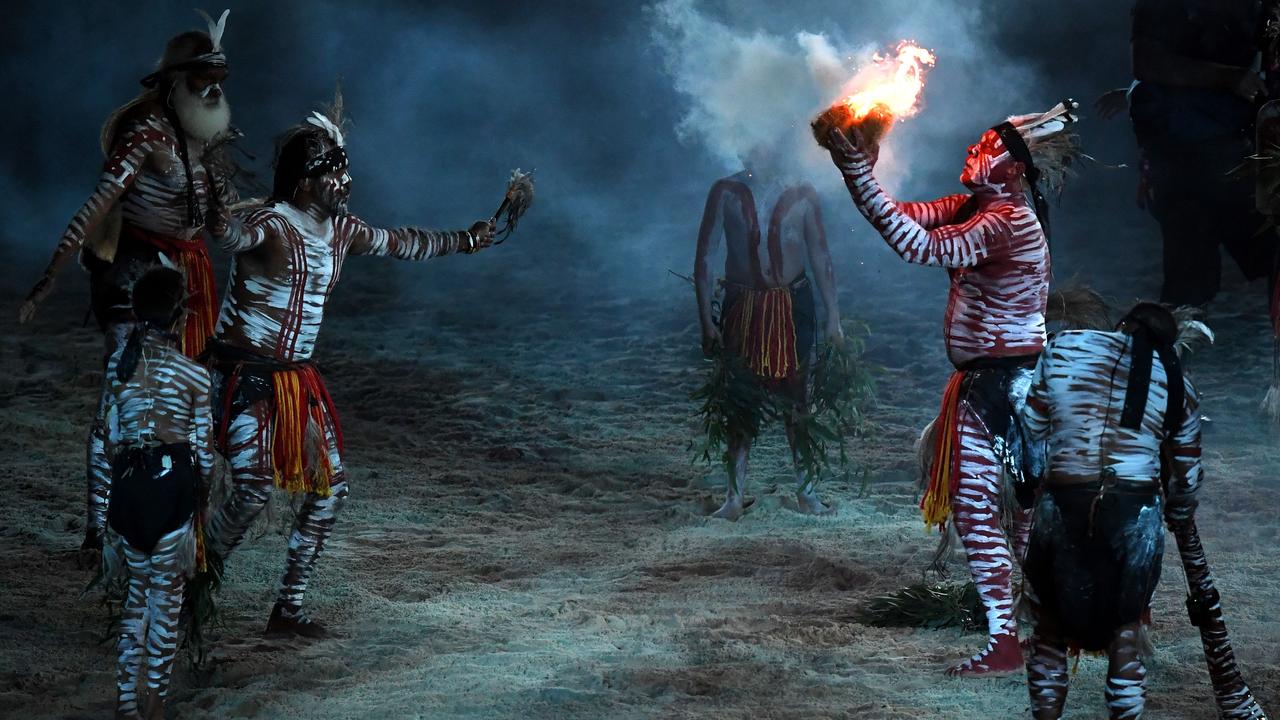
4. We remain blissfully ignorant of Indigenous culture
The Commonwealth Games was a moment that really opened this columnist’s eyes. The opening and closing ceremonies were rightly panned. Except for the sections featuring indigenous song and dance. Those parts, far better than the rest, took many of us by surprise. They were foreign to us. We should all wonder why that might be.
I recently attended a talk hosted by Griffith University with Bruce Pascoe. The author of Dark Emu – a brilliant read – has had his aboriginal heritage questioned on many occasions.
In truth, like so many of us, his bloodline is a jumble of backgrounds, only a small fraction of which is indigenous. So what. As a proud Australian, he’s embraced what’s true to this land.
To question his heritage is to miss the point of his message. Indigenous culture is richer and deeper than many realise. It’s something that should be treasured by all Australians.
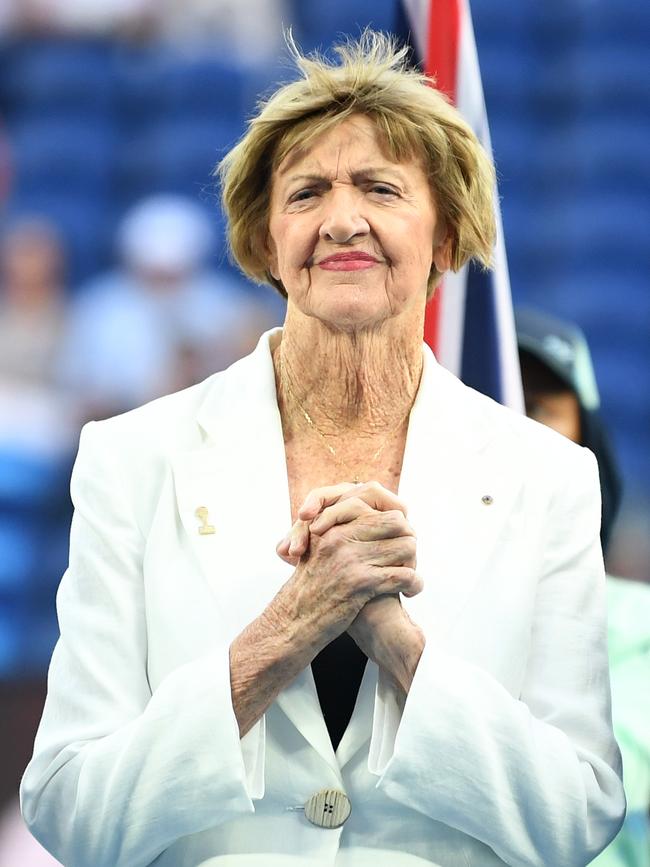
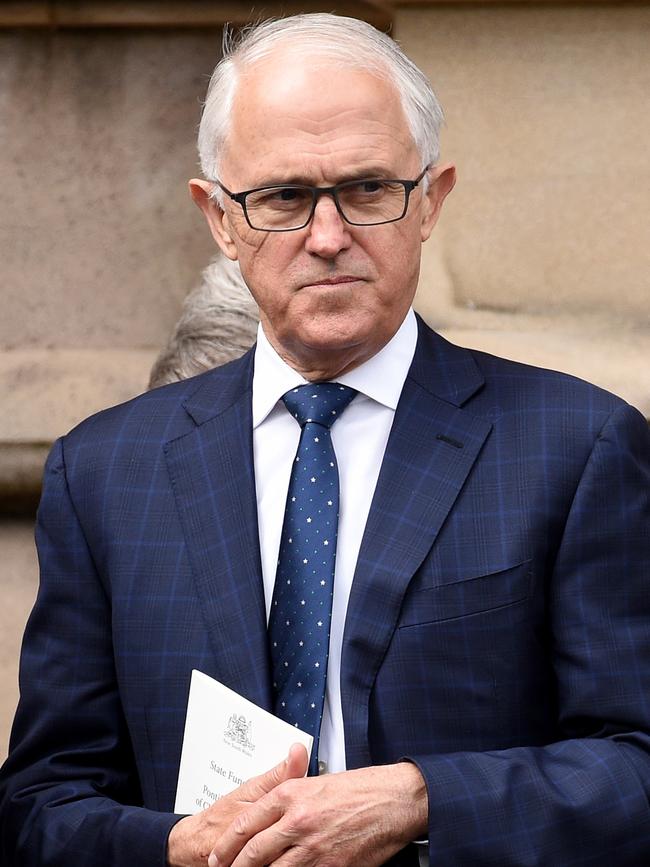
5. The honours system is broken
The honours system looks like an anachronism. So maybe we shouldn’t be too surprised that it rewards someone like Margaret Court, who holds dinosaur views.
But really, who could possibly have thought that was a good idea? Kerry O’Brien had the right idea when he rejected the chance to join her on the list.
Another top winner: Malcolm Turnbull. What a joke.
The honours system clearly needs major reform. By needlessly adding to the controversy around Australia Day, it’s failing in its purpose.




